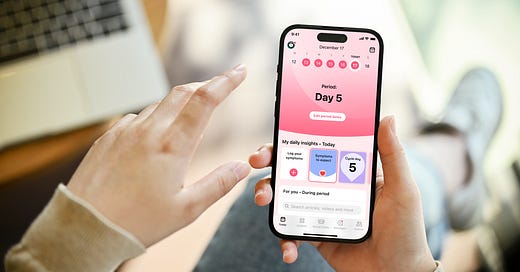Flo app's first randomised controlled trial demonstrates how it boosts women's health literacy
The RCT shows Flo helps women improve how they manage their PMS and PMDD symptoms
In its first randomised controlled trial (RCT) - the gold standard of testing - leading women’s health app Flo has demonstrated that it significantly improves health literacy, and further helps women improve how they manage their PMS and PMDD symptoms after using it for three months.
Working in collaboration with experts at Johns Hopkins University, the University of Virginia, and Texas Christian University, the study highlights the crucial role of health literacy in empowering women and promoting gender equality.
Dr. Liudmila Zhaunova, Director of Science at Flo Health, commented:
“Medical accuracy is at the root of Flo. While we've received anecdotal feedback about Flo's positive impact, we wanted to quantify it scientifically. Unlike most health apps, we chose to rigorously test Flo's effectiveness through randomized controlled trials - the gold standard in medical research.
“This study provides solid evidence that using Flo can lead to improved health outcomes, setting a new benchmark for digital health app evaluation."
The importance of health literacy
Health literacy is defined as the ability to access, understand, and use health information to make informed decisions. It is crucial for maintaining good health for individuals, families, and communities.
Low menstrual health literacy has been linked to inadequate self-care, reduced physical and mental well-being, and limitations in daily activities. The World Health Organization (WHO) emphasizes that health literacy is central to achieving gender equality and empowerment.
In its inaugural Health Literacy Report, Flo identified stark knowledge gaps as well as women's desire to improve their health literacy, with 70% of US women wanting to grow their knowledge of women’s health.
Flo offers a suite of features, including menstrual cycle and symptom tracking, a library of medically-reviewed health content, and a safe and supportive community for health discussions. When women have access to these tools, their health knowledge improves, as do many other measures of health. Flo’s first RCT now demonstrates that these gaps can be addressed through the use of Flo, with its extensive medically-reviewed content library covering many aspects of women’s health.
Significant improvements in health literacy
The RCT revealed that women generally have low levels of health knowledge. However, after using the Flo app for 12 weeks, participants reported significant improvements compared with the control group in several key areas:
Improved understanding of reproductive health
Enhanced awareness of menstrual cycle patterns and symptoms
In addition to improved knowledge, the study also found improvements in the following areas after using the Flo app for 12 weeks:
Better self-reported general health and well-being
Increased confidence in managing health
Improved discussions about health with others
Decreased feelings of shame or embarrassment about menstruation
Reduced anxiety about unintended pregnancies
In a separate trial focusing on Premenstrual Syndrome (PMS) and Premenstrual Dysphoric Disorder (PMDD), after using the Flo app for 3 months, participants reported significant improvements compared with the control group who did not use the app:
Reduced PMS/PMDD symptom burden4
Decreased time off work or study with 1.6 fewer days of absenteeism on average
Improved knowledge about PMS and PMDD
These findings are of a particular importance as nearly half of women with periods across the globe have PMS, and nearly 1 in 10 have PMDD. Together, these two reproductive health conditions have a greater impact on quality of life than type 2 diabetes and high blood pressure in terms of pain.
“As one of the few femtech unicorns in the industry, we have a deep responsibility to ensure the highest medical standards for our users. By collaborating with our team of 120+ medical experts, investing in research with world-class universities, Flo is committed to closing the knowledge gaps in women’s health”, said Dr. Anna Klepchukova, Chief Medical Officer of Flo Health.
“The results of our first RCT affirm that Flo is significantly enhancing health literacy on a global scale, and further highlights the importance of Flo’s global pro-social program which provides free access to Flo Premium across 66 countries, including India, Indonesia, and Nigeria. Nearly 12 million women are already benefiting, and our aim is to eventually reach 1 billion women around the world.”
Flo’s Science team is currently conducting a follow-on study with a greater number of participants to understand how Flo can help women in even more detail. In order to help close the gender research gap, Flo Science team are researching topics such as menstrual literacy on the global scale, women's health related reproductive conditions, sexual health including female orgasms, pregnancy, perimenopause and menopause.





